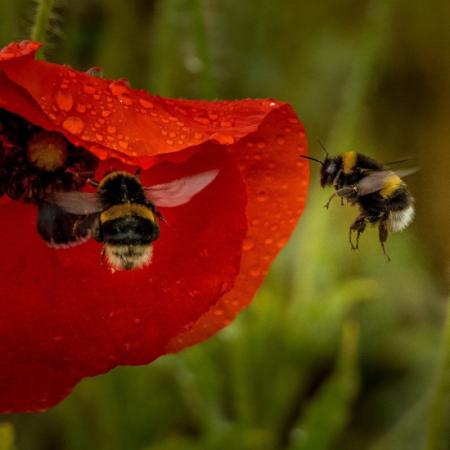
Editorial for March 2021 edition of NetworkNature Newsletter.
Environmental degradation impacts on the well-being of an estimated 3.2 billion people globally whilst the loss of ecosystem services leads to a reduction of more than 10% of our global economic output (UNEP, 2021). A total of 33% of marine fish stocks are overfished and around one-thirds of the world’s farmland is degraded. Trends of ecosystem degradation have also been recorded for ecosystems at regional scale, with a recent EU-wide assessment concluding that the current potential of ecosystems to deliver timber, protection against floods, crop pollination, and nature-based recreation is equal to or lower than the baseline value for 2010.
The impact on biodiversity is equally upsetting. An estimated 32 million hectares of primary and recovering forest were lost between 2010 and 2015, and approximately half the live coral cover on coral reefs has been lost since the 1870s, as indicated by the IPBES Global Assessment report on biodiversity and ecosystem services. Around 40% of all the world’s species live and breed in wetlands but the world has lost 87% of its wetlands since 1700. One out of four mammal species and an estimated 41% of the amphibians are threatened with extinction and whilst globally only a small proportion of the insect species have been evaluated, local declines of pollinator species have been recorded.
Most of us would readily accept the notion that nature is essential for human existence and good quality of life, but in using and extracting resources from the environment we have damaged its ability to sustain human communities, with benefits and burdens being disproportionately shared and experienced differently among social groups, countries, and regions.
The degradation and destruction of natural capital needs to be turned around by an equal, positive, wave of responses that transform society through short and long-term actions that drive a green recovery. In this regard, the United Nations Decade on Ecosystem Restoration 2021-2030 represents a distinct opportunity to collaborate and make meaningful headway in preventing, halting, and reversing the degradation of our planet’s ecosystems.
Action is also seen at regional and national levels, with the EU planning to propose legally binding nature restoration targets as part of its Biodiversity Strategy for 2030. The strategy calls for a stronger implementation of restoration across the land and sea, to ensure that there is no deterioration in biodiversity conservation status, and that restoration increases the EU’s resilience to climate change as a key nature-based solution. Through funding from the research and innovation policy and the EU Green Deal, significant effort has been mobilised towards implementing nature-based solutions and assisting Europe’s green recovery.
Within this framework, NetworkNature, funded by the Horizon 2020 programme, is creating a resource for local, regional and international cooperation to maximise the impact and spread of nature-based solutions.
NetworkNature has recently started its second topical semester focusing on the theme of ‘Nature-based Solutions for Ecosystem Restoration’, and released a concept note on the topic. It is through this opportunity that I will be collaborating with NetworkNature to share knowledge and experiences by bringing together stakeholders from the five main target audiences, and including everyone from governments to financial organisations and businesses, civil society and individuals, from across the globe.
This is an opportunity to reflect on current principles and frameworks supporting the implementation of ecosystem restoration and promote the uptake and upscaling of restoration initiatives as a valid nature-based solution. We hope to collate evidence of the impacts of ecological restoration on biodiversity and the different dimensions that constitute wellbeing. We are interested to learn about projects that have used ecological restoration to reverse biodiversity decline and increase resilience to climate and environmental drivers. Similarly, we would like to learn about experiences using ecological restoration for place regeneration, providing new economic opportunities and educational, recreation and non-material benefits, and to address distributive, procedural and interactional injustices associated with the management of natural capital.
By sharing experiences of ecological restoration from around the world, developing collaborations and co-creating knowledge, it is possible to replicate and scale-up ecosystem restoration and to reset our relationship with nature to one that fosters stewardship and sustainable management of our natural capital.
- Dr Mario V Balzan
Senior Lecturer at Institute of Applied Sciences, MCAST, and Founder at Ecostack Innovations. Coordinator, ReNature Horizon 2020 project.